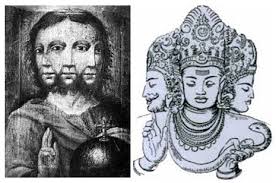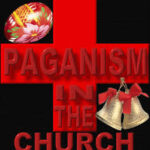By Michael Nyavi (Sir Michael)
Introduction
When Christianity began in the first century A.D., it did not emerge into a neutral or friendly world. Instead, it arose within the vast Roman Empire, which was deeply rooted in paganism. Paganism, characterized by polytheism, emperor worship, and elaborate rituals, stood in direct contrast to the monotheistic, Christ-centered message of the Gospel. This clash of worldviews created tension, opposition, and persecution that shaped the identity and growth of the early Church.
Pagan Beliefs and Practices
Paganism in the Roman world was not a single unified religion but a collection of diverse cults and traditions. Common features included:
- Polytheism – belief in many gods such as Jupiter, Mars, Venus, and Diana.
- Emperor Worship – reverence of the Roman emperor as divine.
- Idolatry and Rituals – the use of images, sacrifices, and festivals to honor gods.
- Syncretism – acceptance of multiple religions and the blending of various cults.
This religious environment stood in sharp contrast to Christianity, which proclaimed that there is only one true God (Deut. 6:4) and that salvation is found in Christ alone (Acts 4:12).
Areas of Opposition
- Monotheism vs. Polytheism
Christianity’s insistence on one God rejected the validity of all pagan gods. Paul, for instance, wrote: “We know that an idol is nothing in the world, and that there is none other God but one” (1 Cor. 8:4). This refusal to acknowledge pagan deities was seen as arrogance and disrespect to Roman tradition. - Rejection of Emperor Worship
While pagans accepted the emperor as divine, Christians refused to bow down, affirming instead that “Jesus is Lord” (Rom. 10:9). This was seen as treasonous and subversive, directly challenging the unity of the empire. - Moral Purity vs. Pagan Immorality
Pagan religious festivals often involved drunkenness, sexual immorality, and violent games. Christians, however, emphasized holiness and moral restraint (1 Thess. 4:3–5). Their refusal to participate in such practices made them stand out and face suspicion. - Exclusive Truth vs. Religious Tolerance
Paganism tolerated many gods and cults, but Christianity proclaimed exclusivity: “I am the way, the truth, and the life: no man cometh unto the Father, but by me” (John 14:6). This uncompromising claim offended pagans who valued religious pluralism. - Persecution and Martyrdom
Because Christians rejected pagan worship and refused to burn incense to idols, they were accused of atheism (denying the gods), cannibalism (misunderstanding the Lord’s Supper), and rebellion. This led to waves of persecution, with martyrs like Polycarp, Ignatius, and many others sealing their faith with their blood.
The Impact of Pagan Opposition
Although paganism fiercely opposed Christianity, its resistance ironically strengthened the Church. Persecution purified believers, spreading the Gospel further as Christians fled from city to city (Acts 8:1–4). Tertullian famously declared, “The blood of the martyrs is the seed of the Church.” By the fourth century, Christianity not only survived but triumphed, eventually becoming the dominant faith of the empire.
Conclusion
The struggle between paganism and Christianity was not merely a clash of religions but a battle of worldviews. Paganism represented multiplicity, idolatry, and compromise, while Christianity stood for truth, holiness, and devotion to one God. Though early Christians endured misunderstanding, rejection, and even death, their steadfast faith eventually overcame pagan opposition, fulfilling Christ’s promise: “I will build my church; and the gates of hell shall not prevail against it” (Matt. 16:18).
References
- The Holy Bible (KJV).
- Tertullian, Apology.
- Eusebius, Church History.
- Rodney Stark, The Rise of Christianity.



